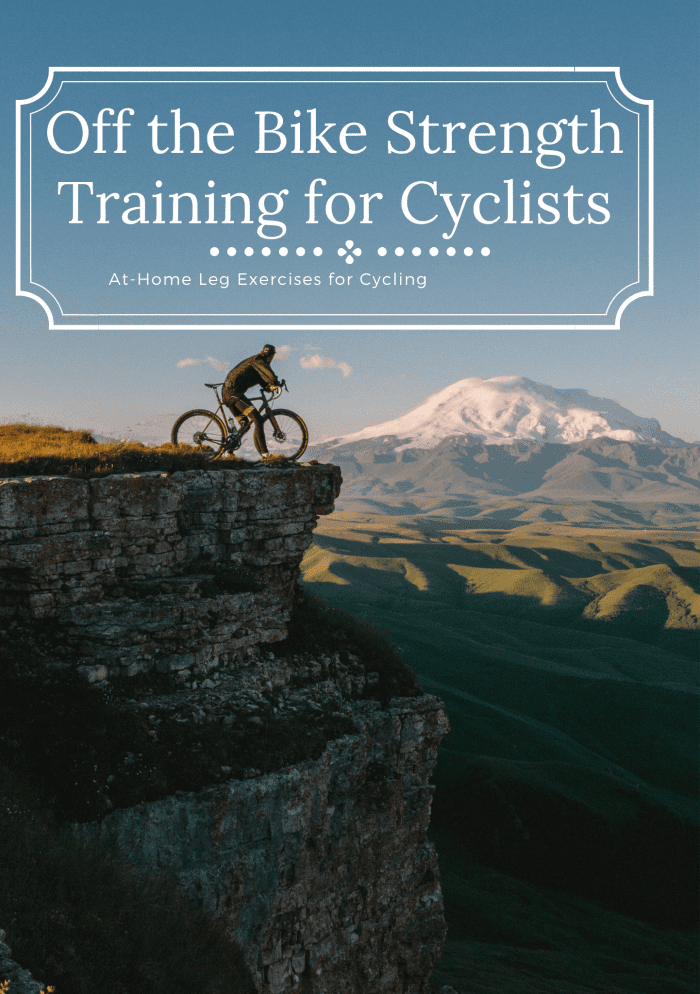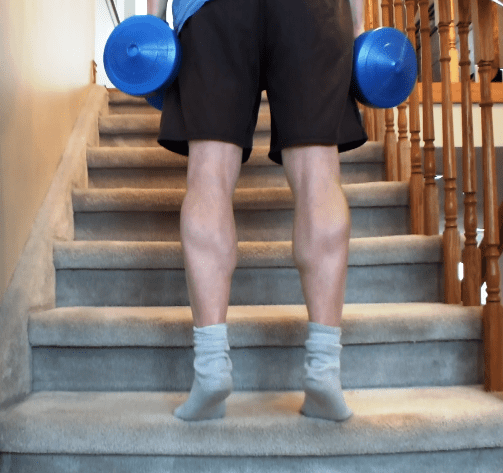
Here are some at-home training exercises to strengthen your muscles.
Photo by Dmitrii Vaccinium on Unsplash
Muscles Used While Cycling
Cycling works your quadriceps, hamstrings, calf muscles and gluteus maximus; this includes the muscles on the front of the thighs, back of thighs, the back of your lower legs, and your bum. Maintaining your balance works your abs. It is a cardio exercise, so it also works your heart and improves your lung capacity. Cycling slowed down my breathing and resting heart rate. A strong heart does not need to beat as frequently.
When cycling indoors you do not need to maintain your balance and you can stop whenever you want. You do not actually go anywhere. It can get boring and you may not feel a sense of accomplishment. The main advantage is that you do not need daylight or good weather. To reduce boredom while using an exercise bike, you could watch TV or listen to music.
When cycling outside you need to maintain your balance and you need to keep going until you reach your destination. You can end up at a park or a beach and take in the scenery along the way. Biking outside is rarely boring, and it can provide you with a sense of accomplishment. I find it relaxing. The main advantage is that it is easier to stay motivated. You just need to pick a destination that excites you and a route that will challenge you.
I recommend biking outside when the weather is nice.

Leg muscles after biking to the beach 4 times.
Michael H
Do Cyclists Have Strong Legs?
Some cyclists have muscular legs some don’t. Biking too frequently can prevent a cyclist from gaining muscle. So can dieting. Biking can burn a lot of calories. So lots of people bike to lose weight. To build muscle you need to give your muscles time to rest and you need to consume enough calories. You also need to work at increasing your strength or endurance.
Cycling is usually considered to be an endurance exercise. You can increase your endurance and build muscle without increasing your strength. To build strength you need resistance. Cyclists that do leg workouts with very little resistance do not have strong legs. You can peddle faster and longer if the resistance is low but pedaling faster or increasing the length of a workout is not always better.
My legs are strong and muscular because I bike to beaches once or twice a week during the warmer months. You need strong legs to bike at a fast pace and go up hills, especially when the bike is set to the highest gear. Setting a bike to a higher gear increases the resistance. You can go fast without pedaling fast and it is a good way to increase your strength. Cyclists that do resistance training on a bicycle or exercise bike have strong legs. Resistance training can improve strength and endurance.
The people you see riding a bike with huge calf muscles have strong legs. You could quickly build muscle and strengthen your legs by doing cycling workouts once or twice a week. Use a high gear to increase the resistance, bike up hills and use interval training. Alternate between peddling fast and peddling at a slower pace.
I started biking to lose weight. I lost around 20 pounds of fat and gained around 35 pounds of leg muscle. You could probably tell if a cyclist has strong legs by looking at their leg muscles.
How Not to Lose Strength in the Off Season
The longer you go without working out your legs the more you will lose. Your muscles will slowly go away as your strength and endurance decreases. They go away faster when you are not consuming enough calories. If you wait for cycling season to start again then you could lose most of the strength and endurance you gained from cycling.
I trained so I could bike 60 km in less than 3 hours on a road with lots of hills. After months of training I reached my goal. Then bike season ended. I slowly lost most of the strength and endurance I gained during biking season. When cycling season started it took over 3 months to get it back. I had to keep starting over again every year because I was not working out my legs enough in the off season.
If you do not want to lose your strength in the off season then you need to do cardio and strength training exercises for your legs. Workout your legs in the off season so you do not lose hard earned muscle. It is easier to prevent muscle loss than to gain muscle.

Calf raises on stairs.
Michael H
At Home Leg Exercises for Cycling Strength
Calf raises work your calves. To do a calf raise start by getting on the edge of a step. Your toes should be on the step. Your heals should be off the step. Now alternate between lifting yourself up on to your toes and lowering yourself back down. Add some weight to increase the difficulty. This exercise may seem too simple but it works. Cycling gives me huge calves. I can also get huge calves by doing calf raises while lifting heavy weights.
Step Ups work your quads, hamstrings and glutes. You can do this exercise at the bottom of a set of stairs or beside a chair. Alternate between stepping up and stepping down keeping your right foot on the step. Repeat for the same number of reps with your left foot of the step. Increase the difficulty by increasing the reps, the height or the weight. You can do them while holding dumbbells or a barbell. I recommend limiting the height to knee high or the height of a chair. When you step down let your toes hit the floor first and step slowly.
Step ups on a chair.
Michael H
Lunges work your quads, hamstrings and glutes. Perform a lunge by stepping forward and kneeling with your back leg. The back knee should come close to the floor without touching it. Your front foot remains flat on the floor. Do a reverse lunge by stepping back and kneeling with your back leg. Work the hamstrings harder by doing a reverse lungs with a long step. For quads use short steps and do forward lunges. After you feel comfortable doing lunges you can do weighted lunges using dumbbells, a barbell or an exercise ball.
Squats work quads, hamstrings and glutes. Stand up straight with your feet shoulder width apart. Squat by slowly sitting down like your sitting on an imaginary chair. Your thighs should become parallel to the floor. Do not to let your knees go past your toes. Sit for a second then stand up to get back into the starting position. Repeat as many times as you can while maintaining good posture. To increase the difficulty add some weight or switch to single leg squats.
Leg Exercises for Bigger Stronger Legs
Biking is one of the best ways to strengthen your legs. Off the bike strength training can give you similar results. You can strengthen the muscles used while biking and increase the size of your leg muscles by doing calf raises, step ups, lunges and squats. After doing strength training exercises for cycling at home I noticed that it felt like I had been biking up hills.
Off the bike training can help you increase your strength faster and it can prevent you from losing muscle when you are taking a break from cycling. I did not bother with calf raises, step ups, lunges and squats because my legs were muscular from biking to parks and beaches but cycling season only lasts 4 months. This time instead of waiting for cycling season to start I am strengthening my legs at home to prevent muscle loss.
Some people can barely walk the day after a leg workout. Being really sore the day after a workout does not mean you had a good workout. It means you did not know when to quit. When starting a new workout routine it is a good idea to hold back the first few times to avoid delayed onset muscle soreness. Don’t try your best the first week because you can’t always rely on pain or muscle weakness to tell you when to stop. Give your body a chance to adapt to your new workout routine and learn when to stop.
I am doing off the bike strength training so I can spend more time enjoying my weekly bike rides during cycling season.
This content is accurate and true to the best of the author’s knowledge and is not meant to substitute for formal and individualized advice from a qualified professional.
© 2019 Michael H
Comments
RoadMonkey on February 16, 2019:
Good advice, much better able to enjoy summer sports

